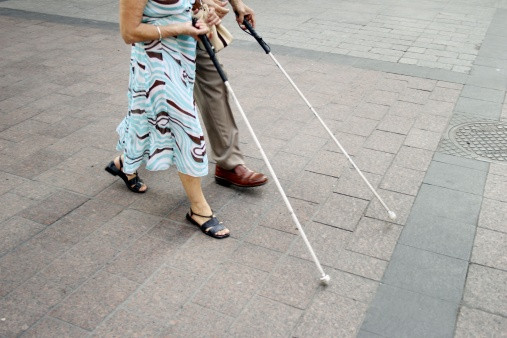Blindness could be reversed thanks to new gene therapy
The treatment restored vision in blind mice.

It may be possible to reverse untreatable blindness using a new gene therapy technique, according to the results of an animal study conducted by researchers from the University of Oxford. The treatment involves reprogramming damaged cells at the back of the eye.
Gene therapy is an experimental medical technique which harnesses genes to treat or prevent disease, usually by either introducing new ones into cells or 'knocking out' those that aren't functioning properly.
Most cases of untreatable blindness occur due to the loss of function in millions of light sensitive photoreceptor cells that line the retina – a light-sensitive layer at the back of the eye that converts light into neural signals, which are sent to the brain for processing.
For the study, the researchers introduced a gene to the non-functional retinal cells in blind mice suffering from a condition called retinitis pigmentosa, the most common cause of blindness in young people. They did this using a viral vector – biological tools that allow researchers to deliver genetic material into cells.
The gene contains the genetic information required for the cells in the eye to start making a light sensitive protein called melanopsin, restoring their functioning and allowing the mice to see again.
Following the gene therapy, the mice maintained their restored vision for the whole year that they were monitored. During this time, the team observed that they were able to recognise objects in their environment, indicating a high level of visual perception.
Mark Hankins, one of the leaders of the study, said the treatment resulted in "long-lasting restoration of functional vision".
The Oxford researchers have also been testing an artificial retina in blind patients in another attempt to restore vision, but the gene therapy approach may prove to be easier to administer as it does not require complex surgery and implantation, according to Hankins.
Samantha de Silva, lead author of the study, said: "There are many blind patients in our clinics and the ability to give them some sight back with a relatively simple genetic procedure is very exciting. Our next step will be to start a clinical trial to assess this in patients."
Commenting on whether the success in mice trials will translate into tangible results in people, Hankins adds that "the route of administration and the vector are all well established in humans. Therefore, the trials will test that melanopsin can restore visual function in humans in the same manner it does in mice".
© Copyright IBTimes 2025. All rights reserved.





















